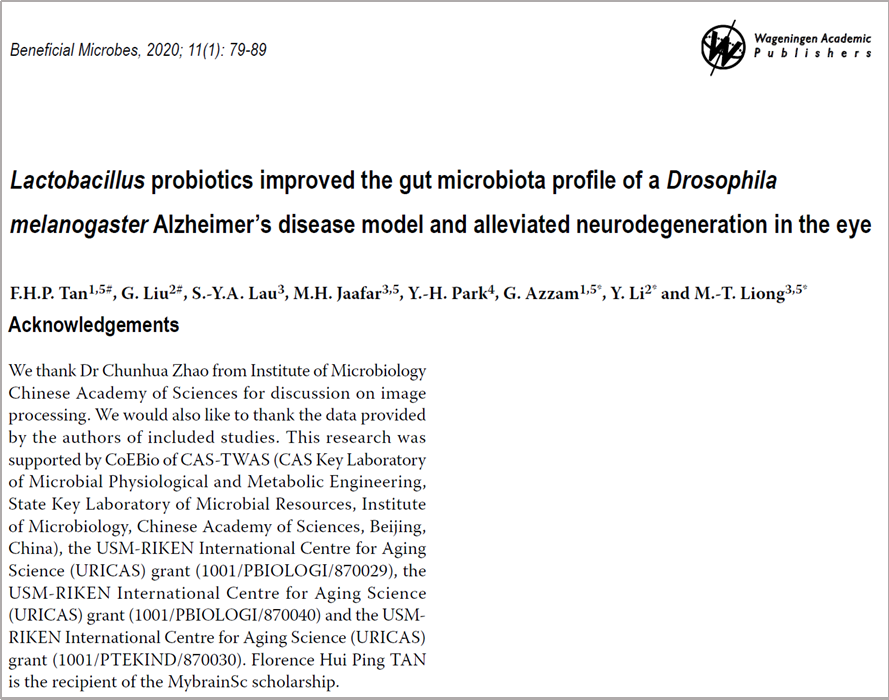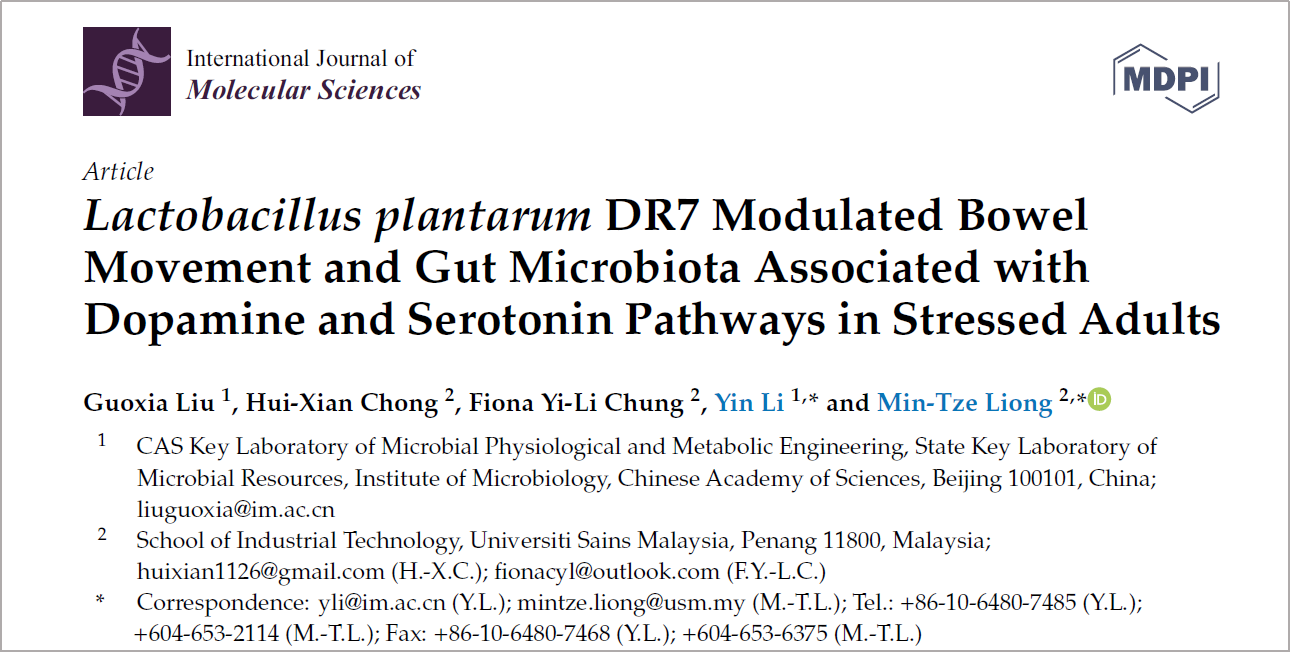CAS-TWAS Center of Excellence for Biotechnology (CoEBio) and Universiti Sains Malaysia scientist Prof. Min-TzeLiong have carried out bilateral cooperation on the probiotic function of lactic acid bacteria in the field of health microbiome. In the project, CoEBio is in charge of microbiome sequencing and data analysis.
In 2018. dozens of probiotics from different sources were systematically evaluated through microbial diversity analysis and phenotypic results of Drosophila melanogaster Alzheimer’s disease (AD) model. By this effort, we obtained effective strains such as Lactobacillus plantarum DR7could repair the compound eyes and the intestinal flora of DrosophilamelanogasterAD model tended to be more normal and healthy. Up to now, the research of probiotics on improving the prevention and treatment of AD has been completed in the animal experiment stage. The research was published in Beneficial Microbes. (doi.org/10.3920/BM2019.0086)
Based on the above cooperation, the clinical double-blind experimental collaboration on functional microorganisms has been further advanced in depth in 2019. Our research evaluated the effects of strain DR7 on cognitive behaviors, gut microbiota compositional changes, and determine the correlations between microbiota changes and the pathways of brain neurotransmitters. The intervention function of strain DR7 was speculated to regulate intestinal peristalsis and intestinal microflora structure, in association with changes along the brain neurotransmitters pathways of serotonin and dopamine-norepinephrine. Compared to the placebo, the diversity of intestinal flora in DR7 treatment group over 12 weeks was enriched with class Deltaproteobacteria, Bacteroidia and Negativicutes, while the abundance of Clostridia was decreased significantly. The work showed that physiological changes induced by strain DR7 could be associated with changes in specific taxa of the gut microbiota along the serotonin and dopamine pathways, has been published in International Journal of Molecular Sciences in 2020. (doi.org/10.3390/ijms21134608)
China and Malaysia actively promoted the progress of the project research and discussed further cooperation, providing new scientific understanding of human health management and disease treatment, and alleviating Malaysia's increasing health care pressure related with population, resources and environment.


Introduction of CAS-TWAS Centre of Excellence for Biotechnology (CoEBio)
CAS-TWAS Centre of Excellence for Biotechnology (CoEBio) was founded in 2013. it is an open and integrative platform aiming to enhance the biotechnology development in developing countries.
CoEBio is supported by Chinese Academy of Sciences (CAS) and the World Academy of Sciences (TWAS) for the advancement in developing countries, and affiliated at the Institute of Microbiology, CAS. CoEBio strives to improve and reinforce biotechnology education, scientific communication, project cooperation and strategic intelligence analysis with the purpose of providing biotechnological solutions to address the issues of resources, energy, population, health and environment issues within developing countries.
The main missions of CoEBio include:
1. Assisting developing countries in advancing the education of students and scholars, in the area of biotechnology.
2. Organizing biotechnology training courses, conferences, symposia, and workshops in developing countries.
3. Coordinating biotechnology related scientific research and development (R&D) projects for developing countries.
4. Strategic intelligence analysis for biotechnology development in developing countries.